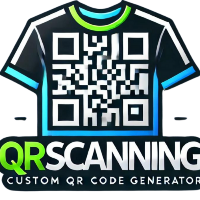
Share
In the ever-evolving world of logistics, efficiency is key. One of the latest game-changers in this industry is the adoption of QR codes. These small, scannable squares are bridging gaps in logistics management, offering a transformative approach to tracking and inventory management.
The Growing Role of QR Codes in Logistics
QR codes, or Quick Response codes, have become a vital tool in modern logistics. By embedding detailed product information into a single scannable code, logistics companies can streamline their processes significantly. From tracking shipments to managing warehouse inventories, QR codes can enhance efficiency at every stage of the supply chain.
Enhancing Tracking Accuracy
One of the principal advantages of QR codes is their ability to improve tracking accuracy. Traditional barcodes, often limited in the amount of data they can hold, are being replaced by QR codes capable of containing a wider range of information. Each scan provides real-time updates, allowing for precise tracking of goods throughout their journey. This level of transparency ensures that both clients and logistics companies have up-to-date information on every shipment.
Inventory Management Made Easy
Inventory management is another area where QR codes excel. By incorporating QR codes into inventory systems, logistics companies can automate the tracking of products as they enter or leave a warehouse. This automation minimizes human error, ensuring that inventory lists are always accurate.
Moreover, QR codes facilitate quick access to product information, enabling warehouse staff to efficiently locate items. This immediacy can greatly reduce the time spent in warehouse operations, increasing productivity and reducing labor costs.
Integration with Technology
QR codes are versatile and easily integrated with existing technologies. Logistics companies can leverage mobile apps and other digital platforms to scan these codes, sync data, and analyze it for better decision-making. Many logistics firms have found success in combining QR code technology with IoT devices and cloud services, creating a seamless flow of information across systems.
Localizing Your Logistics Solutions
For businesses looking to integrate QR codes into their logistics processes, considering local dynamics is crucial. Regional regulations, local market preferences, and specific logistical challenges can all influence how effectively QR codes are implemented.
By focusing on local search optimization, logistics companies can position themselves as leaders in their regional markets. This involves tailoring QR code solutions to meet local demands and ensuring your services are easily discoverable online by local businesses in need of logistics solutions.
QR Codes and Sustainability
Another compelling benefit of QR codes in logistics is their alignment with sustainability initiatives. By reducing paper waste associated with traditional methods of tracking and reporting, QR codes contribute to greener logistics practices. This not only helps in conserving resources but also positions your company as environmentally responsible, a factor that is increasingly important to consumers.
Call-to-Action: Getting Started with QR Scanning
If you are ready to enhance your logistics operations with cutting-edge QR code technology, now is the time to act. For a tailored solution that fits your specific needs, explore our offerings and get a free quote today. Our team is dedicated to helping you implement QR codes that simplify and streamline your logistics processes.
Conclusion
As logistics companies continue to seek ways to optimize efficiency and improve service delivery, QR codes present a powerful solution. By enhancing tracking accuracy, simplifying inventory management, and aligning with technological advancements and sustainability goals, QR codes stand out as an indispensable tool in the modern logistics arsenal. Embrace the future of logistics by integrating QR codes into your operations, and watch your business transform.


